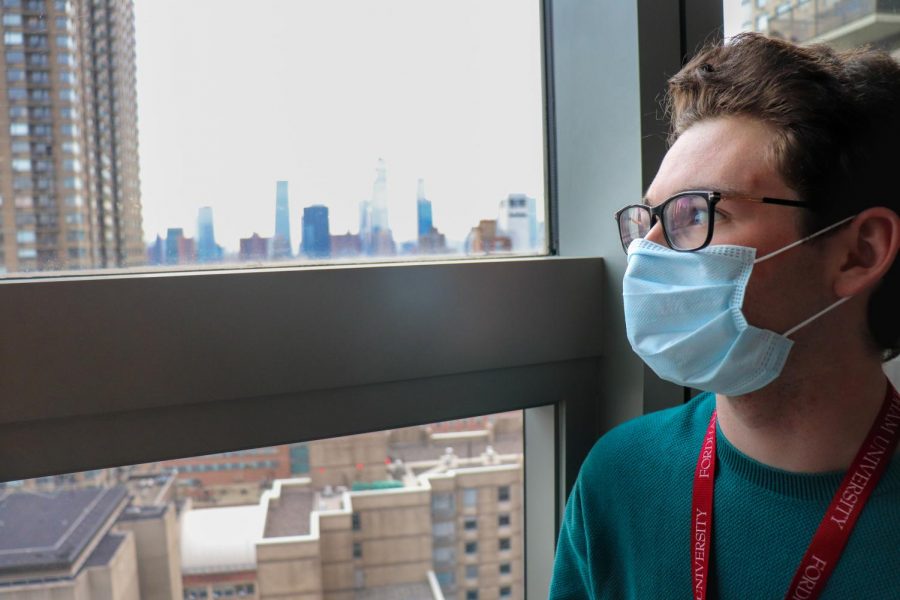Should You Be Wearing a Face Mask This Flu Season?
UHS director warns against student panic in wake of the coronavirus
ANNA KRYZANEKAS/THE OBSERVER
Face masks have become commonplace in a community fearful of the spread of the coronavirus.
February 5, 2020
During flu season, and especially after the increased media attention of the coronavirus in China, it’s common to see individuals wearing surgical masks in public settings. It may seem that doing so will prevent the spread of these illnesses, but the Centers for Disease Control and Prevention (CDC) doesn’t recommend that individuals without symptoms should wear a face mask.
Nevertheless, you may see individuals at Fordham and in the city wearing face masks.
An email to Fordham students from Public Safety and University Health Services (UHS) Director Maureen Keown that addressed the coronavirus stated, “Please be aware that the wearing surgical or face masks in public spaces does not indicate the person in question is ill or infected with the Coronavirus (or any other illness). Many people, including those of Asian backgrounds, wear these masks as a precaution against themselves getting ill.”
In response to new anxieties affecting certain groups, the CDC stated, “Do not show prejudice to people of Asian descent, because of fear of this new virus. Do not assume that someone of Asian descent is more likely to have 2019-nCoV.”
Keown upholds the CDC’s recommendation on face masks.
“No,” Keown said, “facemasks are not recommended for asymptomatic people to prevent the flu.”
The World Health Organization (WHO) further emphasized, “Wearing a medical mask can help limit the spread of some respiratory disease. However, using a mask alone is not guaranteed to stop infections and should be combined with other prevention measures including hand and respiratory hygiene and avoiding close contact.”
Respiratory infections, like the seasonal flu virus, can infect individuals via exposure to germs from coughs or sneezes of infected people. For this reason, the CDC recommends that infected patients wear face masks to reduce the number of saliva or mucus droplets they expel when they are around healthy individuals.
Much of the essential information needed to stop the spread of the coronavirus is still unknown. The lack of information can fuel anxiety and misinformation about the novel virus.
There is currently no specific antiviral treatment for the coronavirus and there is no vaccine to prevent infection. Researchers are still working on these measures, but the good news is that they are also able to grow the coronavirus in the lab, which will expedite these processes.
“I think being concerned about your health and potential illnesses such as flu or coronavirus is normal, but it is not good to panic,” Keown said on Jan. 29. “We are working closely with the Department of Health and are following their recommendations closely. There are no unconfirmed, or confirmed, cases of coronavirus here at Fordham.”
Other precautions students can take to protect themselves from the flu and the coronavirus if more cases arise in the United States, is to “avoid touching your face, nose, mouth and eyes,” according to Keown.
Containing your sneezes and coughs by using tissues or paper towels is another way to prevent spreading infectious particles. Even cleaning surfaces in common spaces with disinfectant wipes will prevent infection. Most importantly, keeping up a consistent hand washing regimen with soap and water will also help.
The most up-to-date information regarding the coronavirus will come from the CDC, United States Department of Health and WHO. These are the organizations with the necessary infrastructure to monitor the spread of the virus. While researchers work on characterizing how the virus spreads and possible treatment options, these sources will provide this information as it becomes available.











